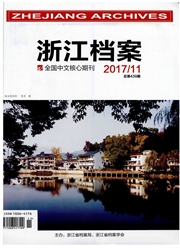

 中文摘要:
中文摘要:
近年来,贵州清水江流域民间文书的相关研究,俨然成为学术界新的研究热点。本文即以清水江下游天柱地区“地良十八家”龙氏宗族为个案,通过对其见存过继文书的解读,考察清末民国族内过继的程序,得出继嗣确立时遵循血缘优先、长子不出继、族戚为证、财产补偿四大原则,并简要探讨族内过继对宗族维系的积极作用。
 英文摘要:
英文摘要:
In recent years, the study of Qingshuijiang documents is becoming a hot point in present paper takes for a case study. By the "18 Long Families in Diliang" in Tianzhu in the lower reach of the Qingsh reading academy. The ui River Basin the documents related to adoption and studying the adoptive process at the end of the Qing Dynasty and the beginning of the Republic of China, the present paper finds four principles : priority was given to those with close consanguinity, no adoption was taken of the eldest son, witness was provided to clan members and relatives, and property was given as compensation. In addition, it probes for the positive value of adoption within the clan to maintain the family inheritance.
 同期刊论文项目
同期刊论文项目
 同项目期刊论文
同项目期刊论文
 期刊信息
期刊信息
